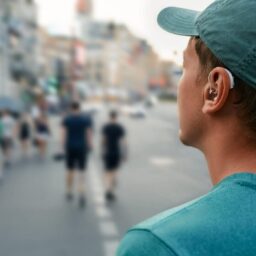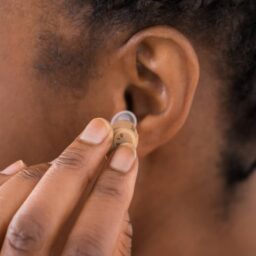When is it Time to Upgrade Your Hearing Aids?

Hearing aids are an incredible tool for millions of people with hearing loss. In fact, according to the National Institute on Deafness and Other Communication Disorders, nearly “28.8 million U.S. adults could benefit from using hearing aids.” However, like with all technology, there will come a time when your current hearing aids are no longer…
What Is Hidden Hearing Loss and How Is It Identified?

Standard hearing tests determine how well an individual hears specific frequencies of sound. They are the most common method of identifying hearing loss and cannot diagnose hidden hearing loss. Hidden hearing loss is diagnosed through a speech-in-sound test. You may be a good candidate for a speech-in-sound test if you’re experiencing hearing difficulties but display…
Here’s Why It Is Important To Protect Your Residual Hearing

Residual hearing refers to any remaining hearing you have after hearing loss has occurred. Hearing loss is not a one-time occurrence. It can change or worsen over time if you don’t take steps to protect it. Limiting noise exposure and consistently wearing hearing aids are two ways you can help prevent progressing hearing loss. Let’s…
Is Technology Putting Your Kids and Teens at Risk for Hearing Loss?

Smartphones are convenient for online shopping, playing games, listening to music and watching TV on the go. The devices have a lot of perks, but one unfortunate growing issue with them is the potential for noise-induced hearing loss. For a long time, hearing loss has been incorrectly associated with aging. While hearing loss and aging can…
Here’s How You Can Protect Your Hearing While Exercising Outdoors

Exercising outdoors is a great way to stay healthy while enjoying the warm summer months. Whether hiking, running, biking, playing pickleball or swimming at Venice Beach, protecting your hearing while exercising is essential. Take a look at a couple of tips for ensuring your hearing safety while you enjoy that run at the park. Keep Your Ears…
How Getting a Good Night’s Sleep Can Help Your Hearing Health

The average healthy adult needs between seven and eight hours of sleep a night. Unfortunately, it’s extremely common to miss a good night’s sleep. From staying up late binging movies to getting up too early for work, people frequently receive fewer hours than they need. A lack of sleep can lead to poor physical and mental health…
Here’s How Hearing Aids Use New Technology to Help You Hear Better in Crowds

Whether at a ballgame, rushing through a busy airport or having dinner with friends at a popular restaurant like Horse in the Alley, crowds can make it difficult to decipher speech and other sounds, especially if you have hearing loss. The good news? Hearing aids are utilizing cutting-edge technology to make listening in busier environments easier than ever…
When—And When Not—to Wear Your Hearing Aids

The National Institute on Deafness and Other Communication Disorders reports, “About 28.8 million U.S. adults could benefit from using hearing aids.” If you have already made the investment in hearing aids and are wondering how to maximize your benefit, it’s important to know when you should and should not wear them. We answer this question…
Enjoy These Activities More With Hearing Aids

Hearing loss can put a damper on your favorite activities. The good news is that hearing aids can help make them more enjoyable. Staying Physically Active Regular physical activity is essential for staying healthy and independent, especially as you age. Hearing aids make it easier to engage in physical activity because they help make you feel more balanced…
How To Choose a Cell Phone When You Have Hearing Aids

Both cell phones and hearing aids have the overlapping goal of helping you stay connected to those you love. If you have hearing aids, you want to make sure your cell phone is compatible with your device so that you can experience the highest quality sound during your calls, no matter where you are. Are…